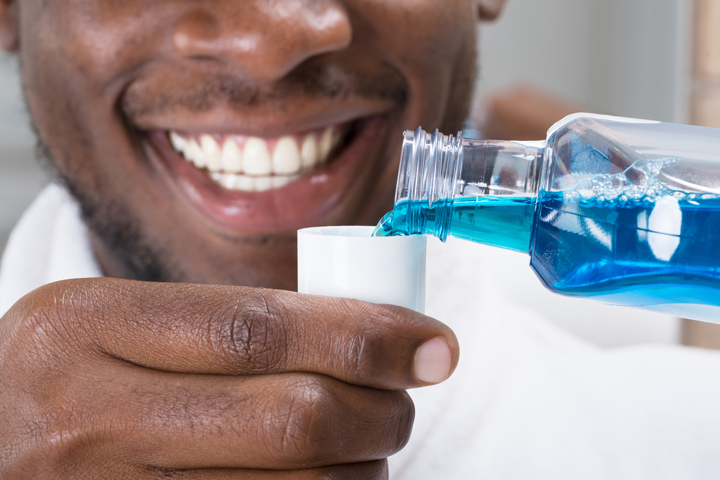
Hey Everyone,
Our practice, Mark W. Langberg, DDS, MAGD, PC, has provided Southfield area residents with high-quality dental care for years. My staff and I get lots of questions, one of which is “Should I use mouthwash every day?”
It’s a good question!
Most people know they should brush their teeth two to three times a day. Others realize that dental floss is meant to be a daily hygiene habit also – to control plaque and tartar buildup in between teeth where your toothbrush doesn’t reach. But using mouthwash is more commonly associated with going out on dates or designated for use after a binge on garlic bread.
However, mouthwash is more than just a tool to eliminate halitosis and smooth the way for positive social interactions. Yes, everyone wants to have fresh breath, but one’s oral health and overall wellbeing are closely linked to good oral hygiene habits on a daily basis – including a therapeutic swish of mouthwash.
Just brushing alone misses lots of tooth surfaces, but flossing and mouthwash can get below the gum line and in between teeth, removing dental bacterial film, neutralizing volatile (foul) sulfur compounds (the odor of bad breath), and killing much of the bacteria that’s linked to gum disease and tooth decay, respiratory ailment and other serious systemic illnesses. For those patients who are prone to decay, a fluoride containing mouthwash will inhibit the growth of cavities. For folks with bad breath without underlying gum infection, use of a tongue scraper to clean the tongue as well as chlorine dioxide containing mouthwashes (neutralizes volatile sulfur compounds) is especially helpful.
Mouthwash is a great tool, but be careful to follow directions on the bottle. Use the proper amount, and do not swallow it. (Mouthwash is not recommended for children under age 12, with the exception of fluoride mouthwashes like Act, which can be used with adult supervision by children as young as age 6 as long as they are able to swish without swallowing.) Some rinses containing alcohol can dry the soft tissues of the mouth and may contribute to mouth sores. Switching to a non-alcohol mouthwash might alleviate these side effects.
For about one in four people, mouthwash is not enough. Their bad breath is the result of other problems such as widespread decay and gum disease, dry mouth, sinus infections, tobacco use, diet or stomach ailments or medication. Addressing the underlying problem is paramount. Please note that using an anti-bacterial rinse does not qualify as gum disease treatment! Periodontal disease and infection can only be treated in a dental office by a dentist!
If you have chronic bad breath, please schedule a checkup with me or my hygienists. Let us help you get to the source of the problem and help you enjoy fresh, clean breath and a healthy mouth! Call us today at (248) 356-8790 or visit us on https://lakeviewdentist.com/southfield/
Well, that’s all for today. Be well!
Mark W. Langberg, DDS, MAGD

